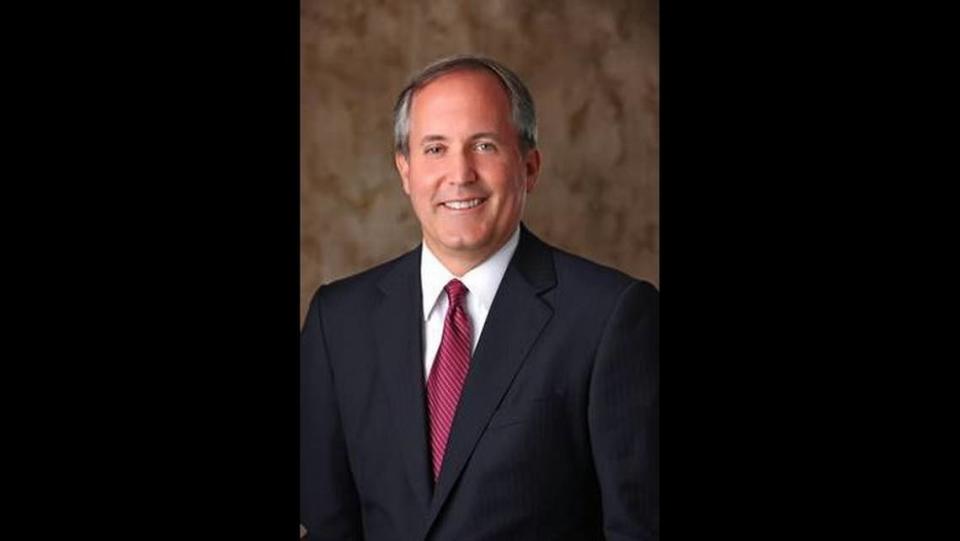Ken Paxton: Court ruling risks letting election fraud off the hook. Lawmakers must fix it | Opinion
- Oops!Something went wrong.Please try again later.
In a stunning and misguided December 2021 decision, the Texas Court of Criminal Appeals concluded that the Texas attorney general does not have the power to prosecute election crimes, despite specific authorization by the Legislature. The court overturned the existing law in a holding that reflects alarming ignorance of the key reasons the attorney general was given this authority in the first place.
The ruling in State of Texas v. Zena Stephens endangers election integrity in Texas by leaving the prosecution of election crime solely in the hands of district attorneys, some of whom prioritize leniency toward criminals over their sworn duty to enforce laws. My office is working with the Legislature to restore the attorney general’s authority to prosecute election crimes in Texas and protect Texans’ right to free and fair elections.
To comprehend the risks of the court’s decision to leave election crime prosecution in the hands of local DAs, one only needs to observe that politicized prosecutors in some Texas counties have routinely encouraged the breakdown of the rule of law. In Texas, a handful of DAs in large metro areas callously ignore the laws they swore to enforce while innocent people suffer. Because these DAs have prioritized a dangerous social agenda over public safety, criminals are empowered to intimidate, rob, assault and murder.
After the criminal court’s decision, Texans must ask: What happens when such officials take an identical approach to election crime as they do to street crime? Rogue prosecutors in Texas could decide that their citizens do not deserve free and fair elections, just as some have decided their citizens do not deserve safe streets.
Street crime explodes when it goes unpunished. Election crime, too, can proliferate when unscrupulous actors know what they can get away with. A rogue DA who has demonstrated indifference to violent crime by selectively enforcing the law may do the same to encourage election results he or she favors by protecting criminal interference in elections.
Election crime severely compromises our democratic system, so there were numerous reasons why, several decades ago, the Legislature specifically elevated the power to prosecute election crimes to the Office of the Attorney General. One key reason is accountability. A DA is an elected official, meaning political considerations could affect the decision to prosecute local election crime if doing so would damage his or her electoral ambitions or political allies.
Under the criminal court’s decision, abuse of “prosecutorial discretion” regarding election crime leaves voters with no recourse at a higher level.
Texas has robust election laws, but these are meaningless if they are not enforced. To preserve the integrity of future elections, we must ensure that officials who have already demonstrated their disregard for public safety cannot also turn a blind eye to election crime and irreversibly tip the scales to alter the outcome of a national, state, or local election.
Key bills before the Legislature would address the imbalance caused by the legally flawed ruling in Texas v. Stephens, as well as the criminal court’s pattern of inconsistent and activist rulings.
Texans may wonder why this is a crucial priority. Ours is one of only two states without a unified judiciary. Our judicial branch is bifurcated between the Supreme Court of Texas for civil matters and the Court of Criminal Appeals for criminal issues. Infrequently, but with damaging consequences, the criminal court has overruled longstanding precedent established by our Supreme Court. This creates legal crises that can deprive our citizens of justice.
The Supreme Court has the duty and authority to interpret the Texas Constitution. The criminal court’s scope must rightfully be limited to ruling on an individual’s rights in criminal cases — not critical constitutional issues. Each of the bills under consideration aims to restore this workable balance: an equilibrium that existed for over 100 years until it was recently disrupted by the Texas v. Stephens decision.
Call your senator and representative to insist on their support for these bills. Texas cannot leave the integrity of its elections in the hands of rogue prosecutors who have already demonstrated a callous disregard for public safety and a dangerous impulse that could be weaponized to deprive voters of fair elections.
Ken Paxton, a McKinney Republican, is the 51st attorney general of Texas.


